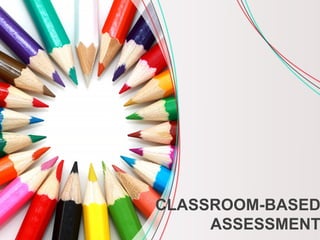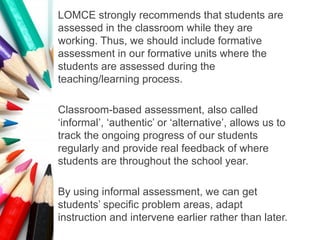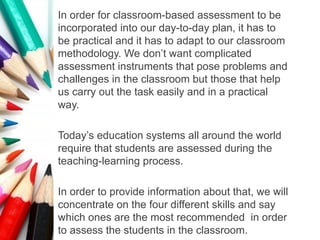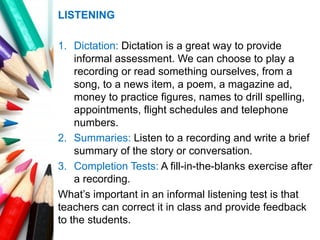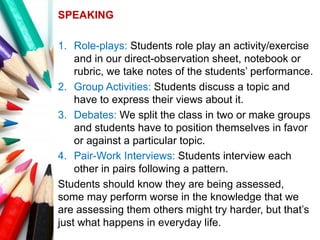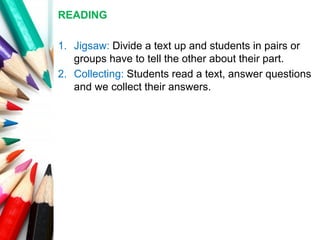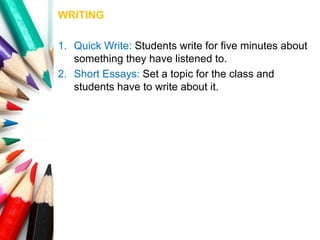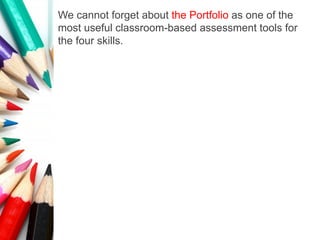This document discusses classroom-based assessment and recommends incorporating formative assessment into teaching units to evaluate student progress. Classroom-based assessment, also called informal assessment, allows teachers to regularly track student progress throughout the school year and provide feedback. In order for assessment to be practical, it needs to easily adapt to classroom methodology. The document then provides examples of classroom-based assessments for listening, speaking, reading and writing skills that are recommended for informally evaluating students.
